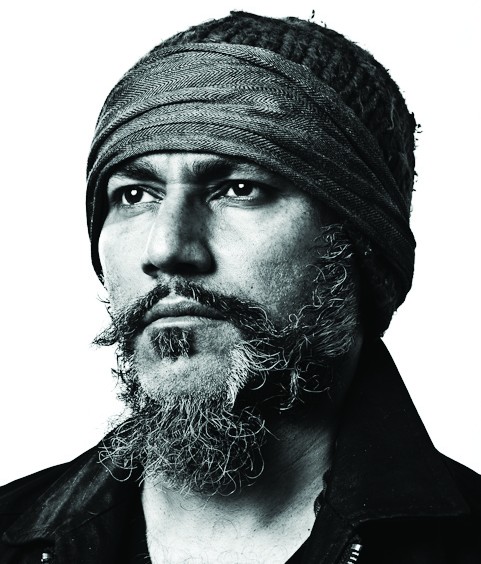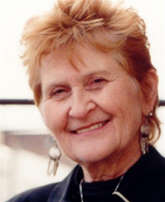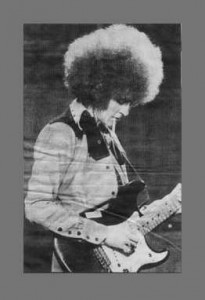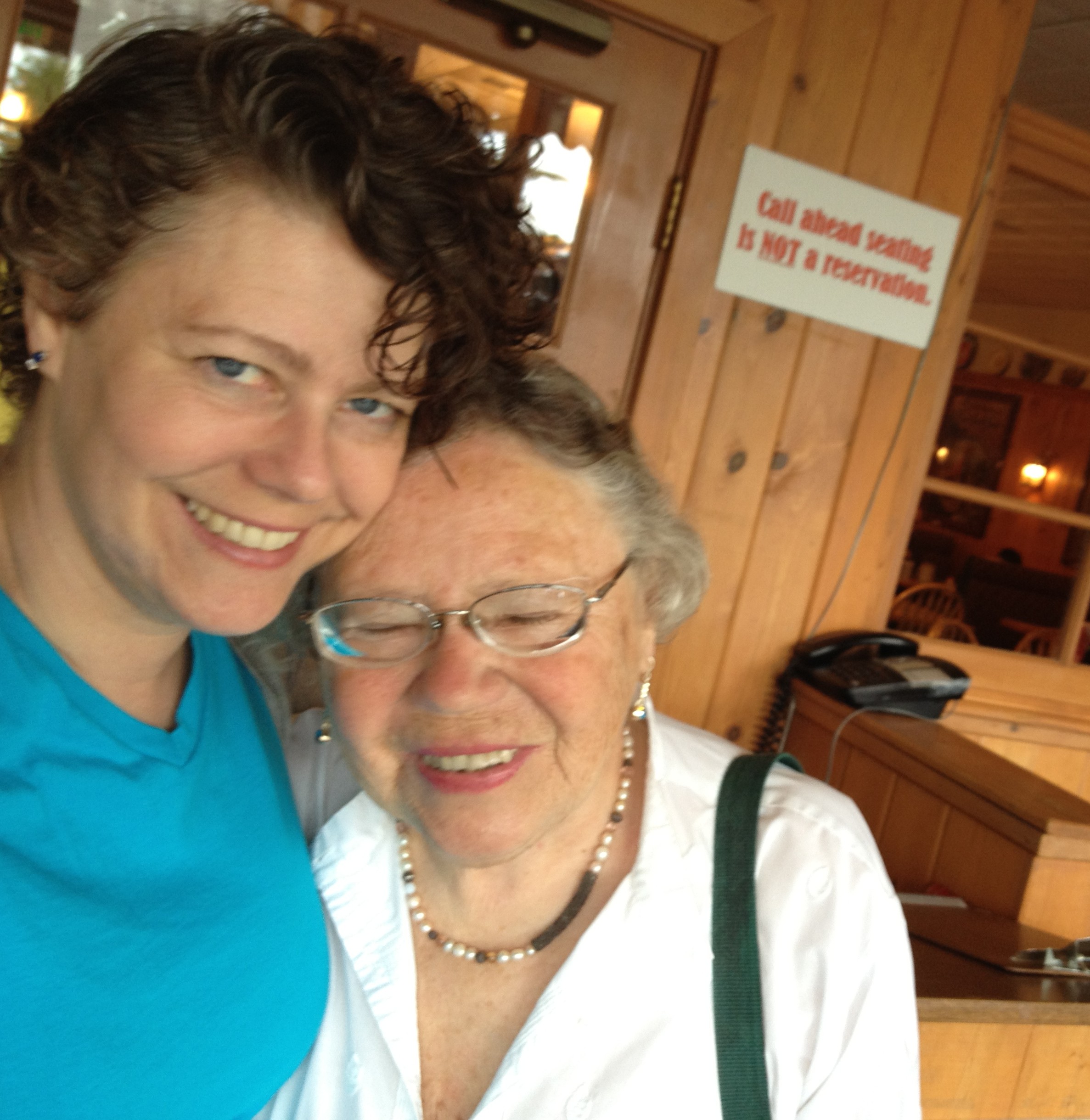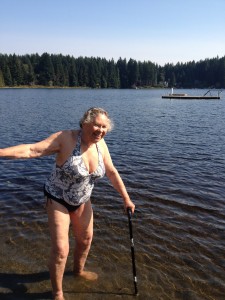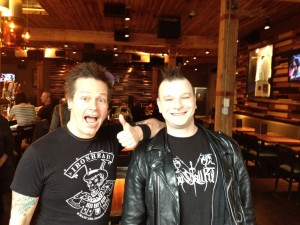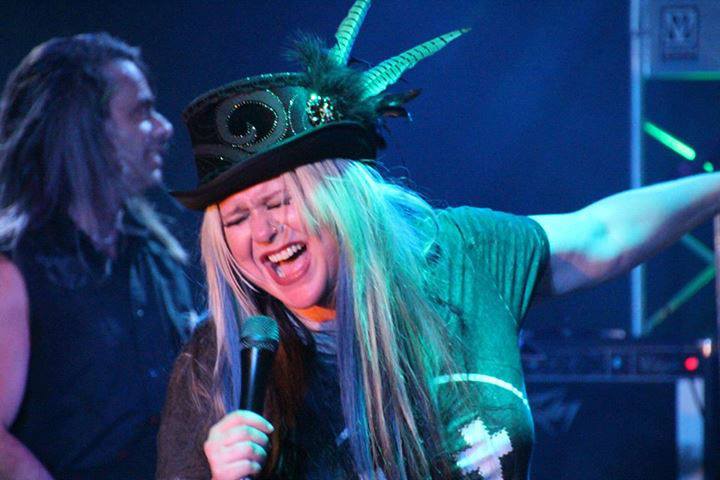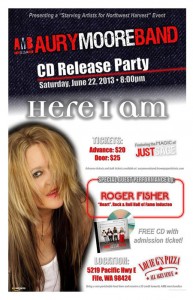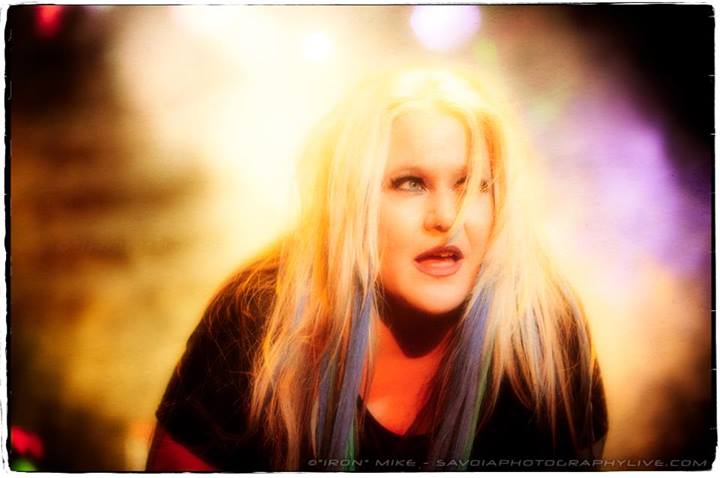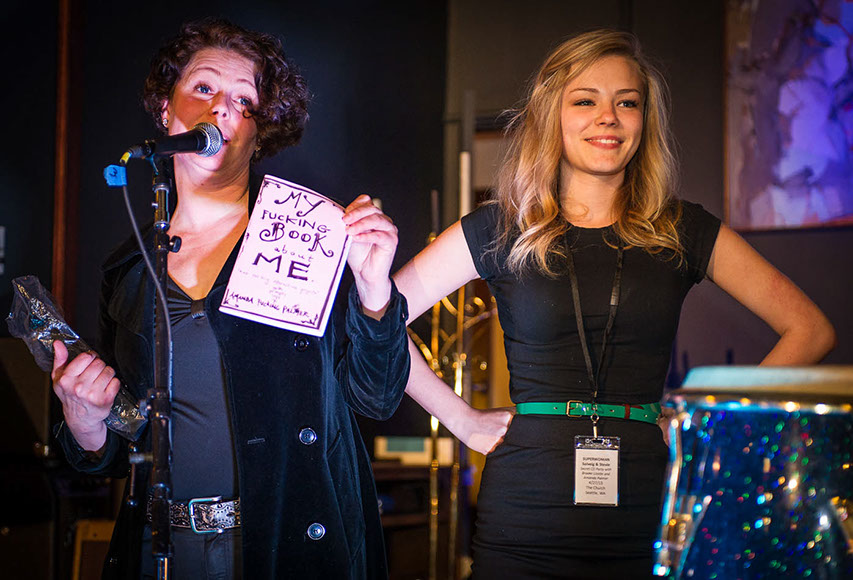Occasionally, I like to interview other musicians who strike me as having an unusual thing going on – whether it is their look, their music, or their marketing. I’m always learning, and it’s great to have role models. When I came across musician Elyas Khan and watched his music video, I thought, huh, here’s a guy who has these elements very together in an unusual way that appeals to me aesthetically.
I think there is a lot of marketing to learn from this actor, dancer, musician, singer and performance artist. He has been Amanda Palmer’s backup band, and Neil Gaiman and Sxip Shirey played bicycle bells on one of his newest songs (read more on that below). Now based in Berlin, Khan is touring Europe in support of his newest release, Brawl in Paradise, produced by Matt Booker. I interviewed Khan via email because I was curious to know more about him and his music. Check out his music video Bells, too, it’s uber cool in so many ways.
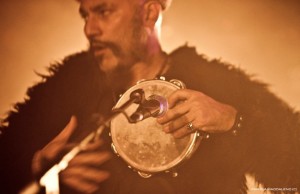
S: Thanks for agreeing to this interview, Elyas. I was really intrigued when I stumbled across your latest music video, Bells, on Twitter. I couldn’t look away, actually. Then, when I delved deeper into your background, I was further flummoxed. The biography on your website is fairly brief. Can you give us a little history and background on you as a musician? I see from your bio that you were in the Brooklyn-based band, Nervous Cabaret, for many years, and you have a very international background. Can you give us a little more about how long you’ve been making music? Do you have another career (as many musicians do) in another profession, or have you been a fulltime musician your whole life?
E: Now music and composition are my fulltime job. My history as a musician is truly only 10 years old though…Out of high school I only had fantasies about the whole thing and fooled around with a punk band called “The Sarcastic Brats” but the guitar was sold early on, school was abandoned and I worked various jobs just living for the weekend. Buying records, new threads, getting to gigs, watching other guys chase women around and jotting it all down in massive leather-bound journals was what I was up to…I dabbled seriously in film school for a while and did well with my profs.
As with many things in my life at the time I just could not complete the program. 16mm film, processing costs and the time it took was just overwhelming to me. I was already doing a late night shift for UPS and washing dishes at a local bistro to keep my head above…
I forged many friendships with kids that were going to art school and got to pour over their books constantly and then someone approached me at the bistro. That place, The Loring Cafe in Minneapolis, was run by many Guthrie Theater and Children Theater alumni. They were about to adapt Siddhartha by Hermen Hesse for their new theatre venture. I was young and probably the only person they knew with Indian parents so they asked me to audition. I did, along with several hundred people and got the job. That started a long chain of events including dancing for a Ballet company, setting up my own company in Minneapolis called Famine Chorus, moving to New York and studying at Playwrights Horizon and then establishing a very active performance company called The Dean Street Field Of Operation (F.O.O.) and creating tape based, cut up scores with found sound and badly played instrumentals for our shows. The whole time I worked as a delivery boy of various goods (don’t ask) and as a mover (don’t ask). I got my SAG card and if you watch some old episodes of OZ and a number of shit films from the 90’s you just might spot me. The entire time I was intent on getting my head around finessing story telling techniques, theatrically, with film and scoring.
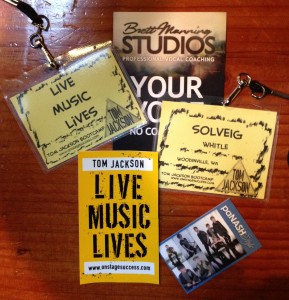 In his many years of experience working with everyone from big name artists like Taylor Swift, The Band Perry, or Jars of Clay to up-and-coming indie artists like the Canadian country duo The Reklaws, Jackson has learned that fans don’t just come to a live show to listen to music. They come to feel emotion. What they crave is to connect with an artist, and to have their lives changed.
In his many years of experience working with everyone from big name artists like Taylor Swift, The Band Perry, or Jars of Clay to up-and-coming indie artists like the Canadian country duo The Reklaws, Jackson has learned that fans don’t just come to a live show to listen to music. They come to feel emotion. What they crave is to connect with an artist, and to have their lives changed.

